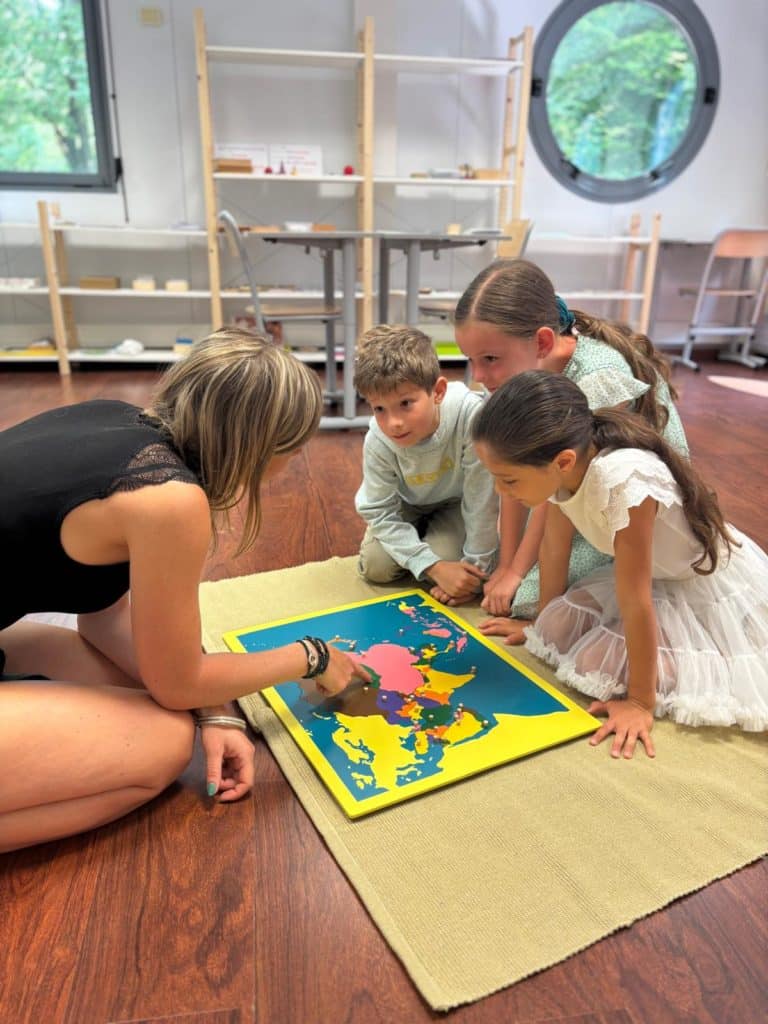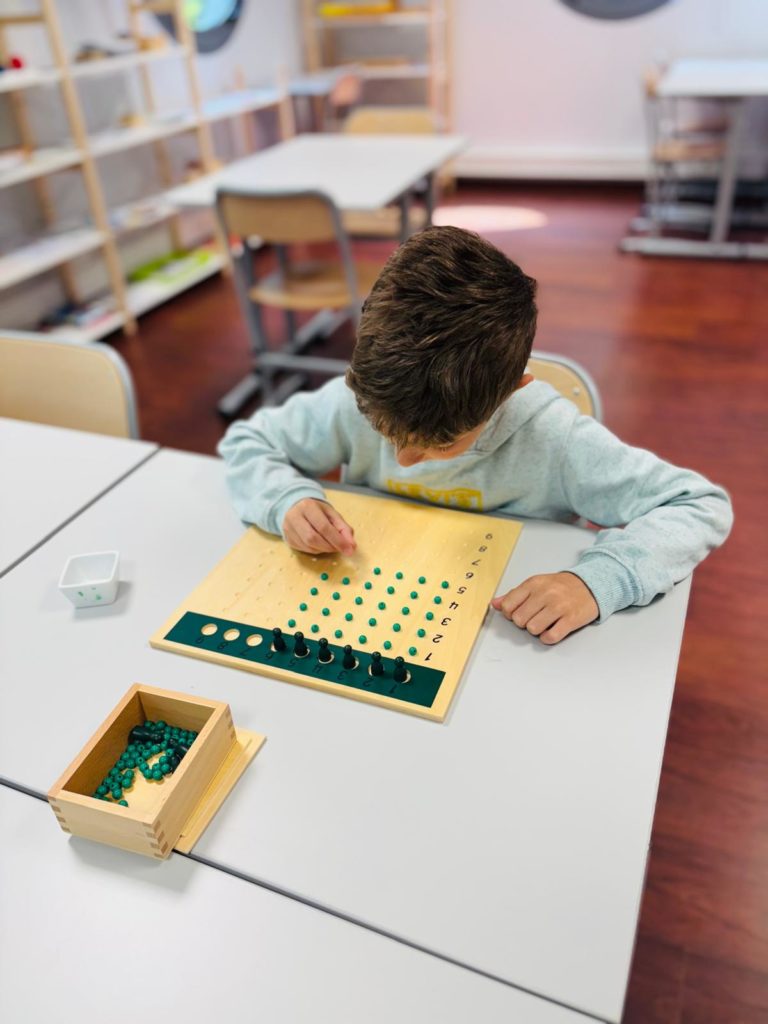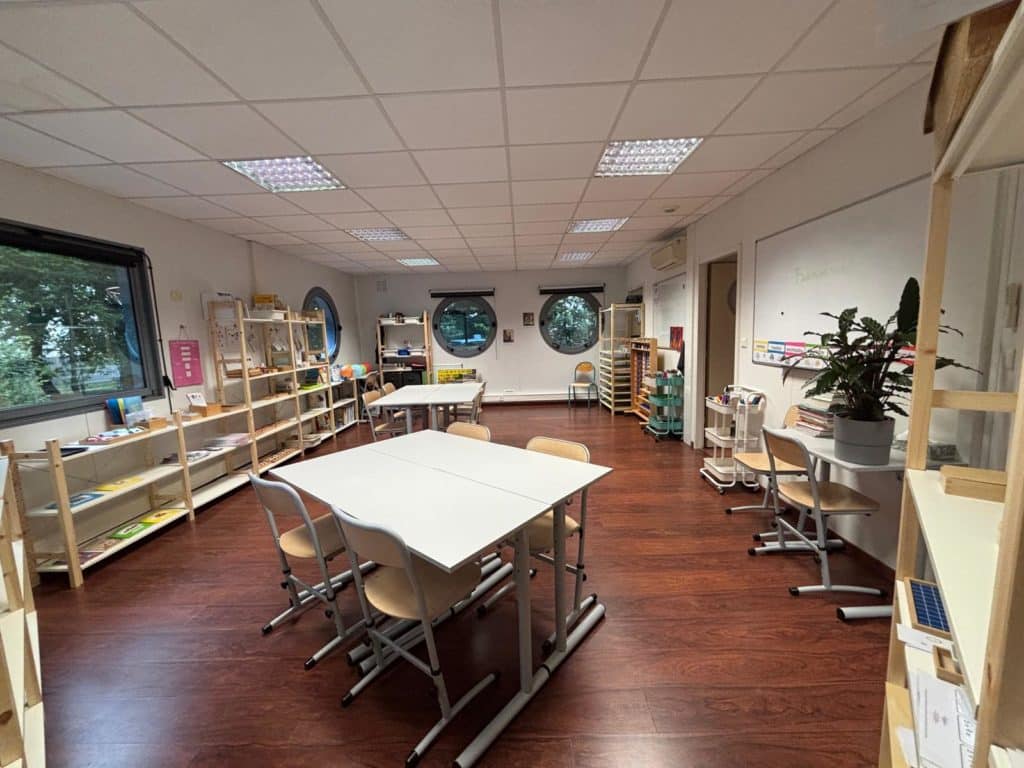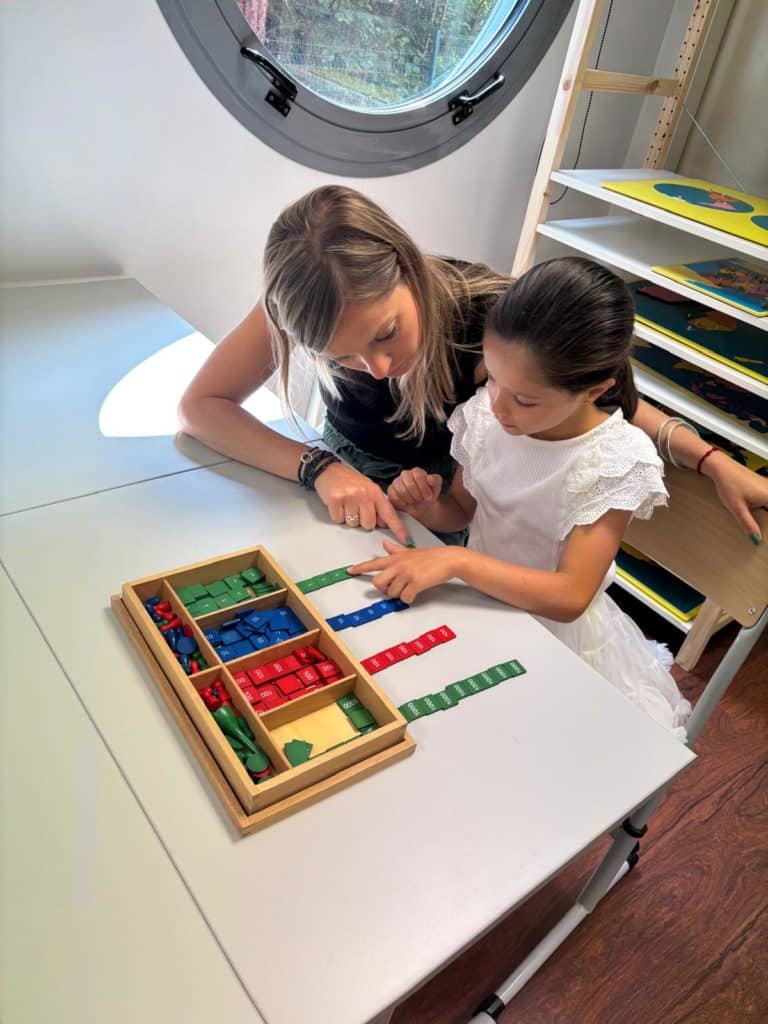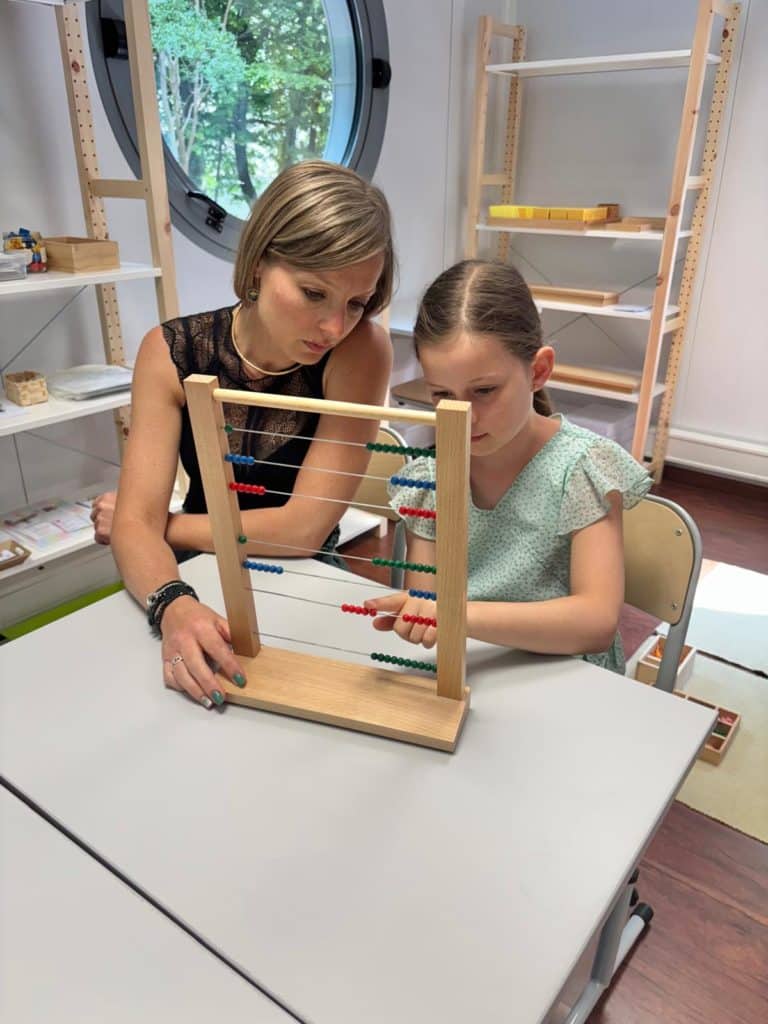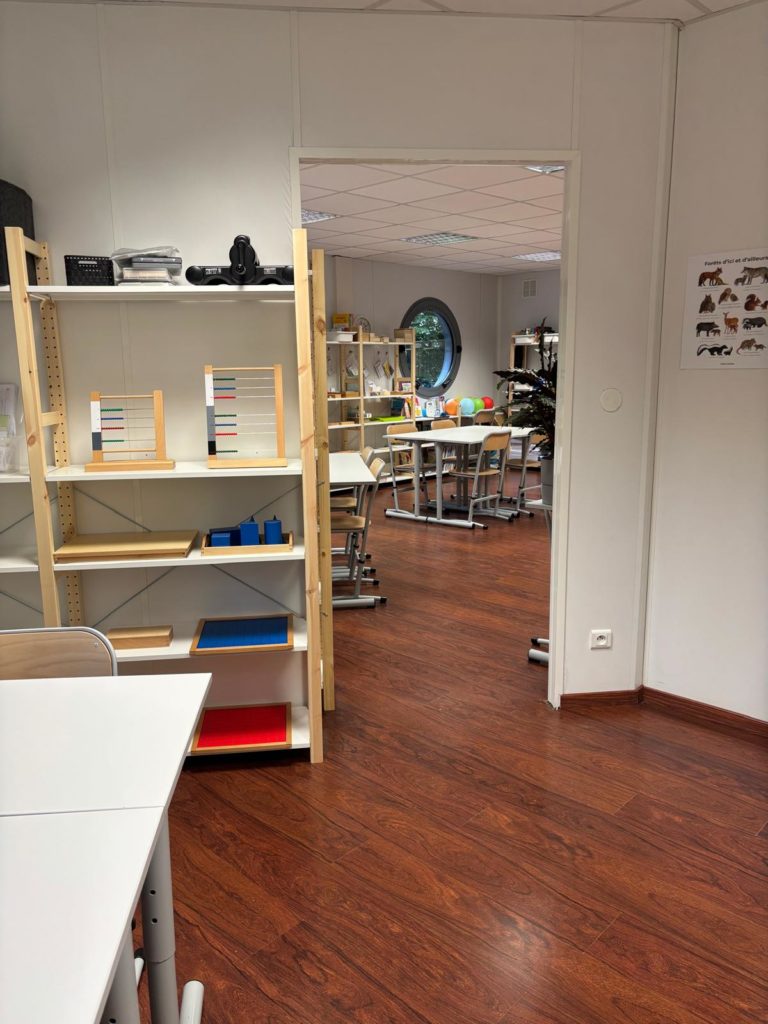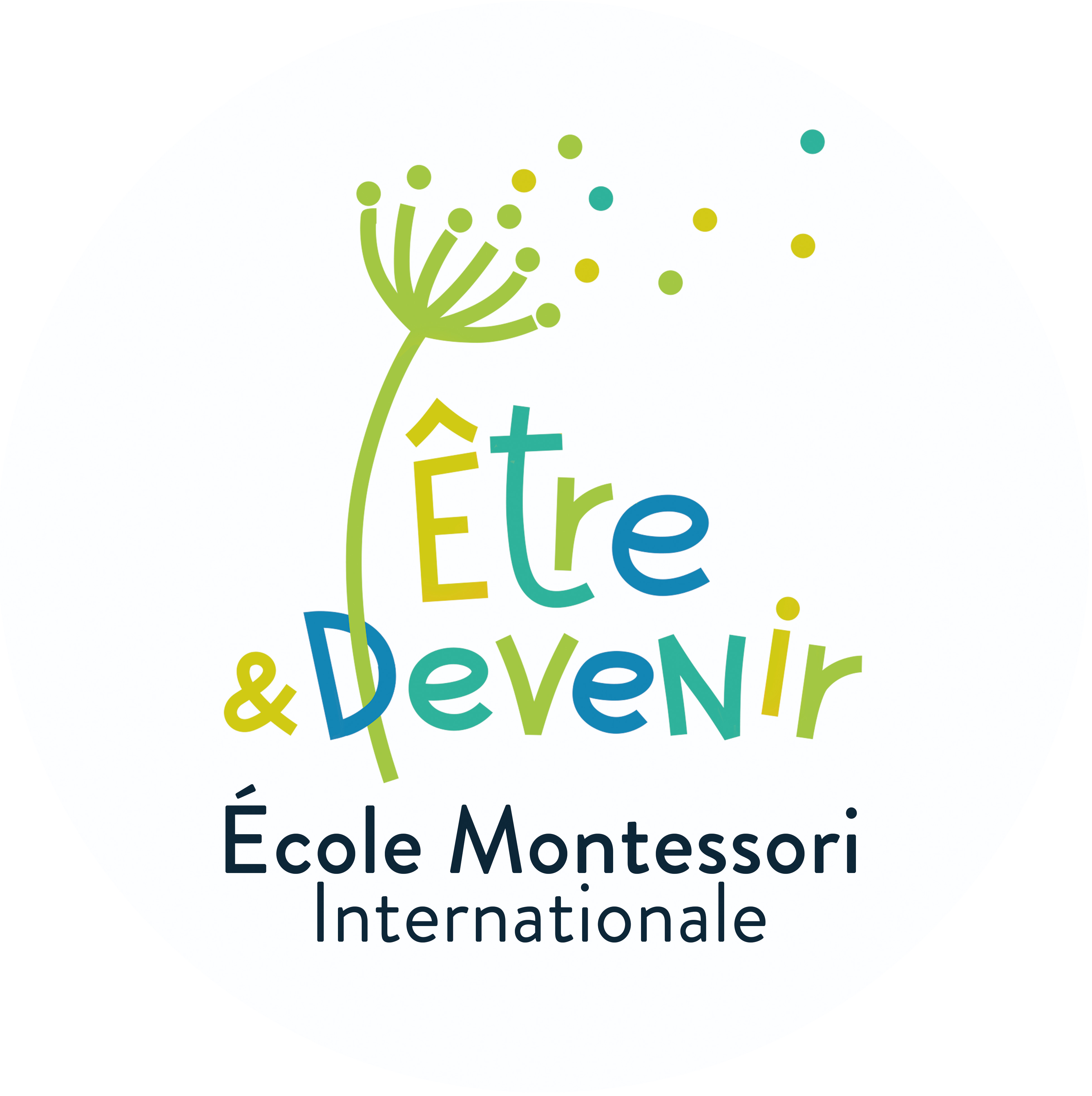The schedule is structured to adhere to the fundamental principles of Montessori pedagogy while respecting the natural needs of children aged 6 to 11.
Between 8:30 and 9:00 AM:
Welcome the children into the classroom, where they can choose a calm activity or prepare their workspace for the day.
9:00 AM:
Circle time (planning the day’s objectives).
9:20 – 12:00 PM:
First work phase. Morning is dedicated to presentation of materials by the educators and autonomous work. Presentations are given individually or in small groups. Each child chooses the order of their activities based on their personalized work plan: mathematics, language, science, history, or geography.
12:00 – 12:10 PM:
Setting the table for lunch with the children.
12:10 – 12:40 PM:
Lunch.
12:40 – 2:00 PM:
Recreation time outdoors to play, chat, and relax.
2:00 – 2:20 PM:
Quiet time, novel reading, or free reading.
2:20 – 4:30 PM:
Second phase of extended work. The afternoon is devoted to group projects and workshops (science experiments, mathematical research, arts and crafts, cooking, botany, sports, etc.) in French and English.
4:30 PM:
End of the school day. Parents come to pick up their children, except for those staying in after-school care.
4:30 – 6:00 PM:
After-school care: Free play in the courtyard or indoors.
Why This Structure?
This flexible organization respects the rhythm of each child. It nurtures their curiosity, autonomy, and joy of learning.
Promote Autonomy: By allowing children to choose their activities and manage their time, they develop a sense of responsibility.
Encourage Cooperation: Group projects and presentations strengthen social skills and self-confidence.
Respect Natural Rhythm: Long, uninterrupted time slots allow for deep concentration, essential for lasting learning.
Value Personal Reflection: Moments of review and preparation help children better understand their progress and plan their goals.
Some pictures of our 6/11 years classroom
in Seyssinet-Pariset (38)
